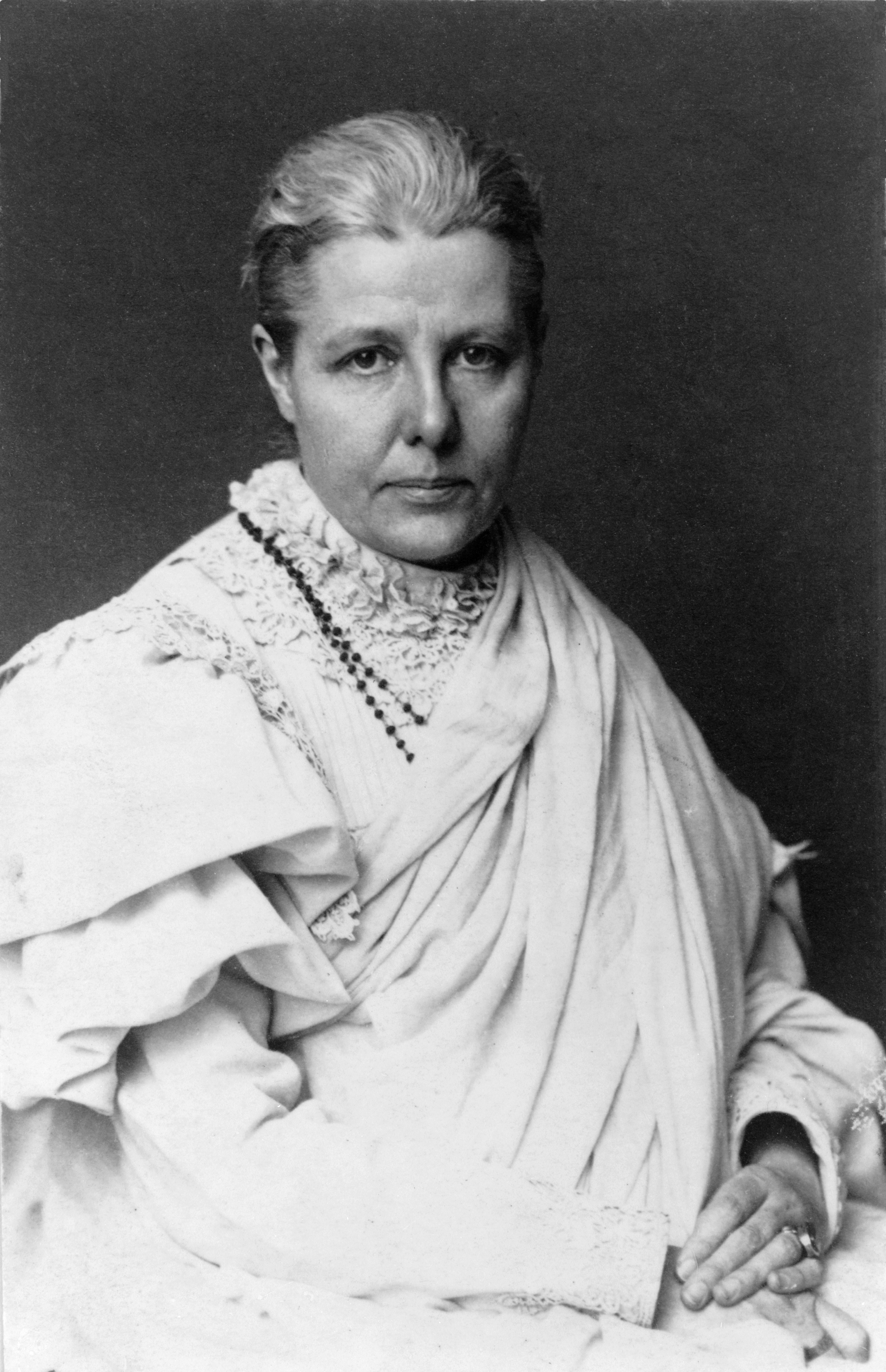"Esoteric Christianity" is a book originally published in 1905. The author, Annie Besant, was the leader of the Theosophical Society Adyar, a new religious movement originally founded by the colourful Madame Blavatsky. Although most members were Westerners (Besant was British), the society was headquartered in India. Besant subsequently played a certain role in the Indian independence movement, as well.
This new edition was published by Quest Books in 2006, and includes an
introduction by Richard Smoley. He has also written a number of critical notes.
I don't know whether Smoley is a member of the Adyar society, but it's
intriguing that Quest Books (Adyar's publishing arm) lets somebody criticize
Annie Besant! New religious movements are usually more dogmatic and inflexible.
The message of "Esoteric Christianity" is a blend of Theosophy and
moderate Gnosticism, which Besant claims is the real but secret message of
Christianity. The closest thing to moderate Gnosticism in the ancient church
would have been the Alexandrian fathers, Clement of Alexandria and Origen, and
Besant therefore gives them a prominent place in her narrative. She has also
discovered a remarkable statement by Ignatius, in which this literalist Church
Father mentions the existence of a secret message! (I also
"discovered" this quotation a few years ago.) Valentinus, Pistis
Sophia and even the epistles of Paul are other sources Besant believes points
to the esoteric message.
Besant believes that the literalism of the official Churches is an acute threat
to Christianity, since modern man simply cannot believe in such a simplistic
message. However, her alternative isn't rationalist liberal theology, but
rather a kind of occultism. Ironically, her occult explanations of miracles,
transubstantiation, prayer and the resurrection are just as "supernatural"
as the (non)-explanations of official Christianity, making her esoteric message
feel closer to Catholicism and Eastern Orthodoxy than to modern, rationalist
Protestantism. For instance, Besant literally believes in angels answering
prayers.
Besant's exposition of the Gospels is contradictory. On the one hand, she
believes that an event can be both literally true and yet have a spiritual
significance pointing to the supernatural. (This position is similar to that of
the Church Fathers!) But if so, why not take the Gospels literally, while
claiming that the Gnostic message is an addendum? However, Besant doesn't seem
to take the Gospels very literally, despite her view that even the physical
resurrection could be literally real (she believes the physical body can be
re-animated by a highly developed spiritual body). Instead, she spins a
ridiculous theory according to which the real Jesus lived 100 BC, the only
"proof" for such a theory being some modern clairvoyant (unclear
which one - Leadbeater? Blavatsky?). Why not admit that Jesus did live during
the rule of Pontius Pilate and explain all his miracles in the occult manner?
The editor Smoley takes Besant to task for her strict belief in karma and
consequent denial of the power to forgive sins. I never read Smoley's own
books, but apparently he is closer to "official" Christianity on this
point. In that, he is surely right: the main difference between the Gospels and
the Eastern conception of karma is precisely the remission of sins - that's why
Jesus is said to have come in the first place. To Besant, sins cannot really be
forgiven unless the karmic debt is repaid in some horrendous fashion, and when
Jesus "forgives" sins in the Gospels, he is simply stating that the
individual in question has *already* repaid his karma with the appropriate
sufferings. Her view of the crucifixion and resurrection, while surprisingly
"literal", has nothing to do with remission of sins either, but is
rather a demonstration of the power of spiritual evolution - everyone can
become a Christ. It's also a kind of allegory for the initiation into the
"Lesser Mysteries".
From a scholarly viewpoint, most of what Annie Besant is saying in
"Esotetic Christianity" can be problematized. Most scholars would
argue that she is projecting the views of Valentinus, Clement, Origen and even
Blavatsky onto the earliest Church, which had a different message. Still, her
book is interesting, precisely because of her more sophisticated,
semi-literalist stances. Also, it's interesting that Besant somehow assumed
that her occult and supernaturalist explanations of the Gospel stories would
appeal to a rationalist audience. Perhaps they did - she was there, I wasn't.
Today, however, I suspect that her book might rather appeal to decidedly
non-rationalist New Age believers or even some Catholics of a more mystical
bent.
Once again, a commendation to Quest Books to republish "Esoteric
Christianity" with critical comments by a sympathetic fellow traveller.

No comments:
Post a Comment